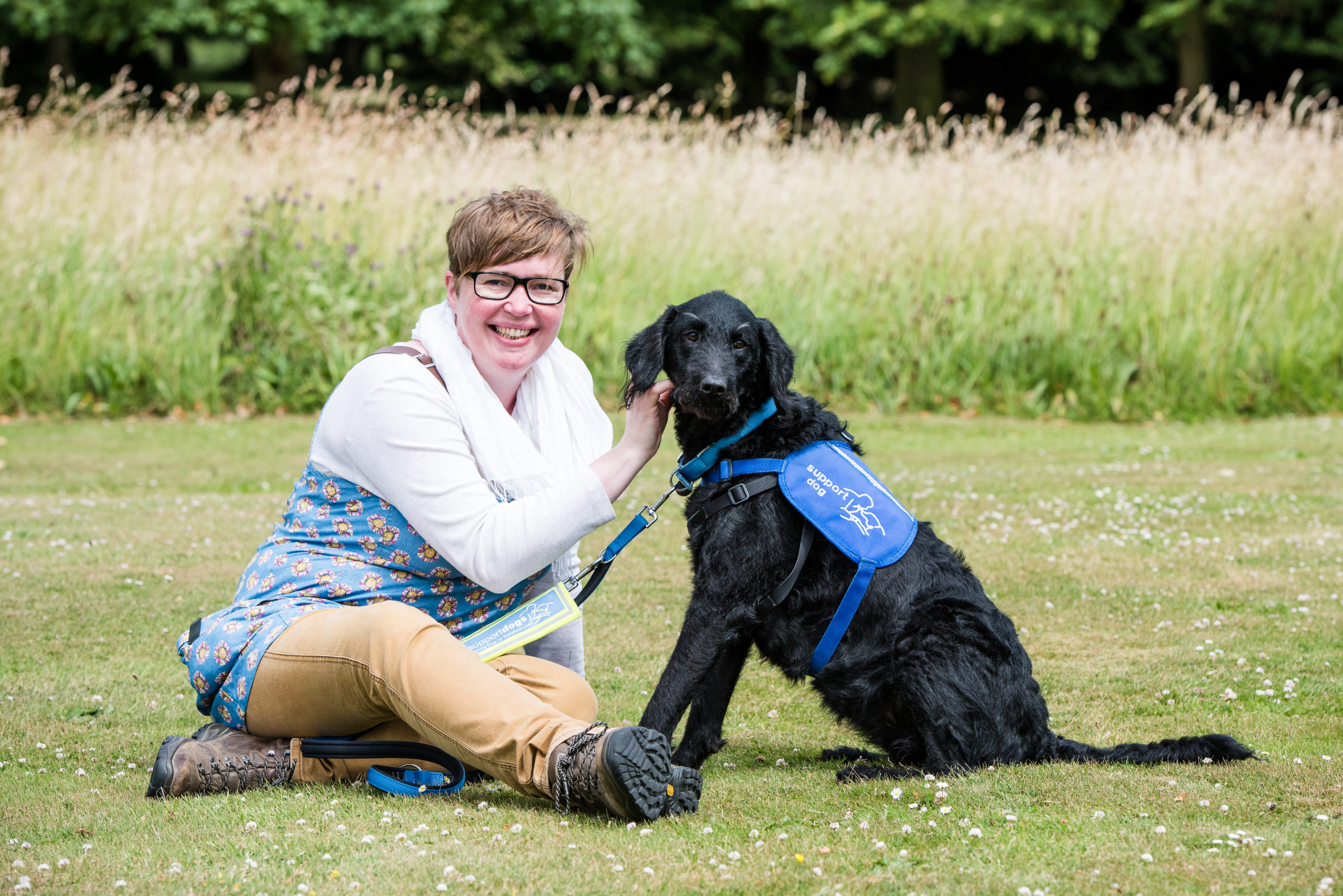
Ruby the Labradoodle is not just a pet, but a disability assistance dog who helps her owner, Andrea Jack, live a full life at home and at work.
Andrea, 51, who works as a customer experience manager for a global precision medicine firm, has psoriatic arthritis, a severe condition that affects her joints and skin. Ruby, trained by the national Support Dogs charity, helps Andrea with day-to-day tasks, such as picking items off the floor, emptying the washing machine, opening doors and helping her to get dressed.
Speaking during National Inclusion Week, which celebrates diversity and inclusion and taking action to create inclusive workplaces, Andrea highlighted how Ruby has enabled her to continue excelling at work.
Support Dogs is a national charity which trains and helps autistic children and adults with epilepsy or a physical disability to live safer, more independent lives.
Andrea, of Wigan, had been an award-winning volunteer with the charity before she came to need Support Dogs’ help herself. She has an inflammatory form of arthritis called ankylosing spondylitis, which up until around a decade ago, had been controlled by anti-inflammatory drugs. But just three months after getting Ruby as a pet, she suffered a painful flare-up and shortly afterwards, was diagnosed with psoriatic arthritis, a severe, chronic condition which affects the joints and skin. She set about applying to Support Dogs to have Ruby trained to help her with day-to-day tasks.
Ruby now accompanies Andrea to work meetings, both in person and online, and has even travelled to Ireland and Northern Ireland by ferry and plane. Andrea said that having Ruby with her when she travels for work has enabled her to manage independently staying in hotels. “Ruby has travelled to Ireland on the ferry and has even been trained to fly with me in the cabin of the aircraft, which entailed extra training provided by Support Dogs,” Andrea said.
“Having Ruby with me when I travel for work has enabled me to manage independently staying in hotels. She helps me to get undressed at the end of the day, for example pulling off my socks and trousers, plus she picks up dropped items for me, including my walking stick/pole.
“Ruby has travelled to Ireland on the ferry and has even been trained to fly with me in the cabin of the aircraft, which entailed extra training provided by Support Dogs.”
Andrea added that it would be very difficult for her to travel for work without Ruby.
“I wouldn’t be able to be independent,” she said.
“I mean who would want to have to ask a colleague to help them get undressed? With Ruby with me I don’t have to do that, so I can travel to meetings just like my colleagues and just like I used to do before I got my diagnosis.”
Andrea’s employer, Diaceutics plc, has been very supportive of Ruby and her role as an assistance dog. Andrea said that the company’s culture is such that Ruby is not just accepted, but fully integrated and embraced, often literally. “I have always felt that I am seen for my abilities not my disabilities, and that Ruby is seen as an asset not an inconvenience,” Andrea said.
Ruby is doted on by her colleagues, who often want to see her on video calls, and is spoilt with treats at HQ meetings. Ruby even had her own delegate badge at one meeting and was included in the company photos. “Ruby has been described by one employee as our ‘pawfect employee’,” Andrea added.
Ruby, 10, is coming up to retirement age, and Andrea has been matched with another Support Dog, Nikey. Ruby will get to put her paws up as Andrea’s pet while Nikey takes over as her assistance dog.
Support Dogs is a national charity which trains and helps autistic children and adults with epilepsy or a physical disability to live safer, more independent lives. To find out more about Support Dogs, please visit: www.supportdogs.org.uk

